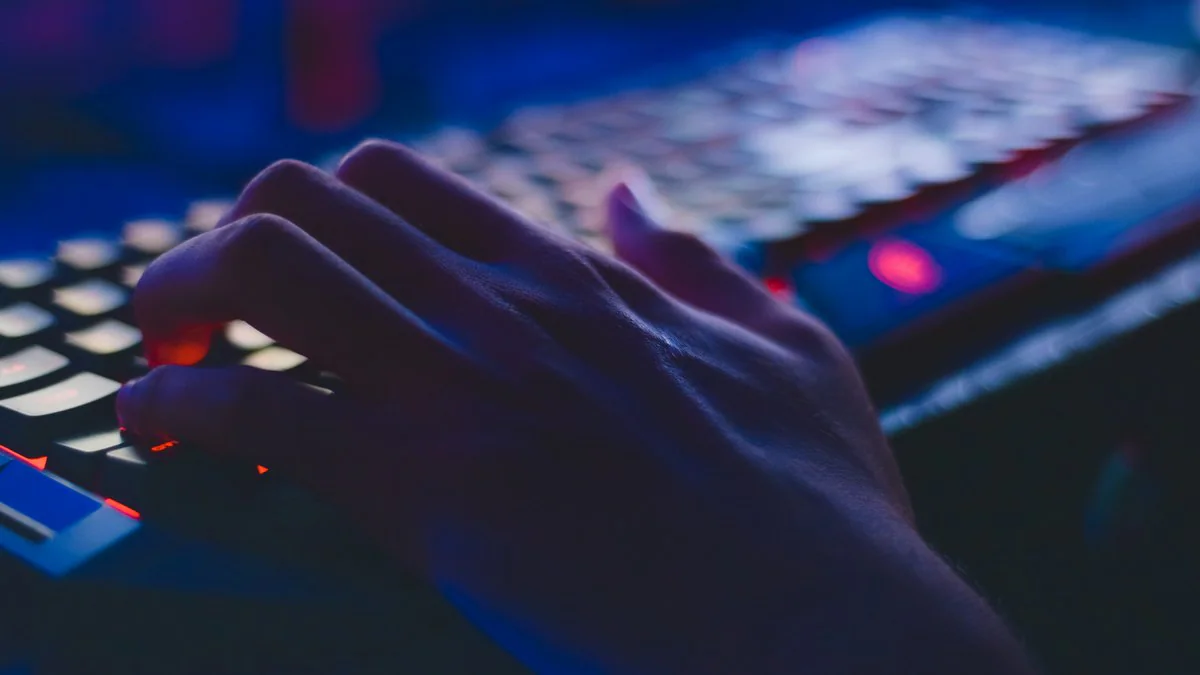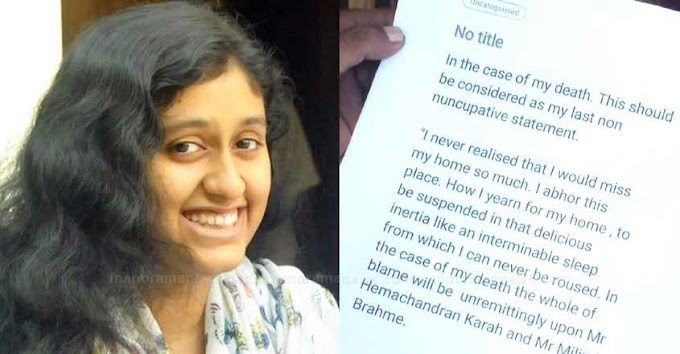
More than a decade agone, Chinese scientist Pan Jian-Wei came home from Europe to assist superintend analysis into a number of the foremost vital technology of the twenty first century.
At a conference in Shanghai this summer, Pan and his team offered a rare peek at the work he delineated as a "revolution."
All the gear is predicated on quantum technology - Associate in Nursing rising field that might rework IP and confer massive economic and national-security blessings to countries that dominate it. To the dismay of some scientists and officers within the us, China's formidable investment helps it catch up with Western analysis within the field and, in a very few areas, pull ahead.
China's drive has sparked demand additional R&D funding within the us, and helped trigger considerations within the Trump administration that some styles of scientific collaboration with China could also be aiding the People's Liberation Army and pain United States of America interests.
"The us should be ready for a future within which its ancient technological predominance faces new, maybe unexampled challenges," the middle for a brand new yank Security wrote in a very recent report concerning China's quantum ambitions.
Quantum technology seeks to harness the distinct properties of atoms, photons and electrons to create additional powerful tools for process info.
Last year, China had nearly double as several patent filings because the us for quantum technology overall, a class that has communications and cryptanalysis devices, consistent with research firm Patinformatics. The us, though, leads the planet in patents with reference to the foremost prized phase of the sphere - quantum computers - due to significant investment by IBM, Google, Microsoft et al.
In 2017, the journal Nature named him one among "ten folks that mattered this year," oral communication he had "lit a hearth below the country's efforts in quantum technology."
Pan often provides research laboratory tours to President Xi Jinping, United Nations agency takes a keen interest in his work, consistent with Chinese media. Pan is additionally overseeing plans for a brand new national research laboratory for quantum analysis in Anhui province, that he aforementioned had drawn concerning $400 million in government funding.
At the Shanghai event, Pan illustrated his slide presentation with science-nerd jokes concerning Einstein and "Star Trek." in a very nod to Schrödinger's cat - a Nineteen Thirties thought experiment that helped outline a quantum thought known as superposition - Pan used pictures of a cartoon feline standing upright and lying flat on its back.
"As we tend to all recognize, in our standard of living, a cat will solely either be in Associate in Nursing alive or dead state," Pan said, however "a cat within the quantum world will be in a very coherent superposition of alive and dead states."
He was creating the purpose that quantum particles, conjointly referred to as quantum bits, take issue essentially from the bits in today's technology. Existing computers and communications networks store, method and transmit info by breaking it down into long streams of bits, that area unit generally electrical or optical pulses representing a zero or one.
Quantum bits, or qubits, that area unit typically atoms, electrons or photons, will exist as zeros and ones at a similar time, or in any position between, a flexibility that permits them to method info in new ways in which. Some physicists compare them to a spinning coin that's at the same time in a very heads and tails state.
In his speak, Pan elaborate however China is harnessing qubits to safeguard its communications from hacking - one among the fields within which China seems to own a lead over the West.
Pan and his team area unit reaching to launch a constellation of satellites and a nationwide fiber-optic network that use qubits to firmly transmit info. Associate in Nursing virtually one,300-mile fiber link connecting Peking, Shanghai and different cities is already up and running. thus could be a satellite China launched in 2016, that has conducted many distinguished experiments, as well as facilitating a hacking-resistant video conference between Peking and capital of Austria.
When the network is complete, it might complicate United States of America efforts to listen in on China's government or military communications, some Western scientists say.
"I predict China can go black in 2 to 3 years - we can't be ready to scan something," aforementioned dessert apple Dowling, a physics faculty member at Pelican State State University United Nations agency spends a part of the year as a visiting educator at USTC in Shanghai.
Others argue that even though China's network instrumentality is safer, it might still be hacked by manipulating the humans running the system.
If the technology gains traction globally, China can be in a very robust position to sell it, given the massive range of patents its universities and firms have registered for devices and technology with reference to quantum communication and cryptography, consistent with Patinformatics.
Pan has attributable Edward Snowden for motivating China's quantum analysis. the previous National Security Agency contractor's revelations concerning United States intelligence agency eavesdropping junction rectifier China to pour cash into developing safer communications, Pan has aforementioned in revealed interviews.
Barry Sanders, a Canadian scientist from the University of Calgary, spends 2 to 3 months a year as a prof at the USTC labs in Shanghai.
Sanders aforementioned China's cultural variations will offer blessings within the research laboratory.
"I have my Western manner of doing things - freedom of thought, take risks," he said. In China, there's additional stress on the good, he said. "One guy spent 2 years very centered on the way to prepare the research laboratory space. you'll assign folks these tasks - they'll do one thing that in our world would be seen as to a lower place United States of America. however here they're supported and command in high esteem."
Pan received his academic degree from the University of capital of Austria in 1999 and conducted more analysis at the University of Heidelberg before moving home, along side many Chinese colleagues.
China's work on quantum technologies at the time was "relatively backward" and required outside facilitate, Pan aforementioned in Associate in Nursing email. "Therefore, our team took the initiative to send students to prime analysis teams abroad to find out connected technologies," he said. "Fortunately, they later came back to figure in China."
Most of the Chinese researchers speaking at the Shanghai conference spent years learning overseas. Their slide decks were peppered with humorous references to Western popular culture and events. One featured an image of President Donald Trump with the caption "Make SPDC nice Again" - a relevance Associate in Nursing optical method whereby a gauge boson splits in 2. throughout a tea break, one Chinese researcher's phone erupted in a very ringtone from the program "Friends."
Their PhDs or postdoctoral credentials came from universities like Stanford, the Massachusetts Institute of Technology, Cambridge and therefore the University of provincial capital, consistent with their biographies written within the program.
While their talks did not target military applications, a lot of of the technology they are following would have clear uses in each the business and defense realms, scientists say.
Quantum computers may sometime be ready to crack all existing styles of cryptography. Quantum sensors might facilitate the Chinese military track and target enemy troops with larger exactness.
Scientists United Nations agency have mentioned the sphere with United States government officers say the Trump administration has recently expressed concern concerning the amount of Chinese students following studies within the us in sensitive areas like quantum science.
"We've forever inspired the most effective and brightest to return from overseas, and it is usually served our nation well," aforementioned John Preskill, the Richard P. Richard Phillips Feynman faculty member of Theoretical Physics at the American state Institute of Technology, United Nations agency has suggested the govt on quantum-tech problems. "But there's concern in government concerning however we tend to area unit coaching of these folks, and a great deal of them area unit going back to China and competitive in technologies that have implications for national security. And we're talking concerning what to try and do concerning it.
"Many folks in domain, though we all know there area unit difficult problems, area unit inclined to continue encouraging Chinese students to return," Preskill aforementioned, "but there's a unbroken discussion within the government concerning what is the best policy for doing that."
In Associate in Nursing opinion piece this month, 2 United States of America university associations aforementioned their members were strengthening security protocols and building nearer relationships with the Federal Bureau of Investigation and intelligence agencies, when hearing "increasing concern" from the national concerning "foreign interference" in university analysis. They conjointly praised the contributions of Chinese students and college, and aforementioned the us should still welcome them.
Pan aforementioned he believed collaboration would bring solely rewards in quantum science.
"The educational exchange advantages each countries," he aforementioned via email. "I see no reason some that the us government ought to fret and discourage traditional educational activities. Recall that quantum physics was initial developed in Europe, and so captive to the us."
Asked whether or not his cluster contributes to analysis for the Chinese military, Pan aforementioned his university and team area unit "by nature, for basic research project and education."
"We publish our basic analysis leads to international journals that area unit offered to scan from all round the world. From reading our papers, people, United Nations agency will be from the us, Europe, Japan, or China, may well be galvanized and more develop 'immediately useful' technology or product for business or business or military use," he said, adding this was "out of our management."
Some corners of the United States government area unit limiting collaboration with China. The agency aforementioned it needed to limit "unauthorized transfers of scientific and technical info."
"What we've got aforementioned in shorthand is, you can not work for the Department of Energy and for one among these foreign talent accomplishment programs. you can not work for a remote country and therefore the Department of Energy at a similar time," Chris Fall, director of the agency's workplace of Science, aforementioned in Associate in Nursing interview.
In part intended by China's progress, Congress late last year passed the National Quantum Initiative Act, that licensed an additional $1.2 billion in analysis funding over 5 years. The DOE is on faucet to receive a giant chunk of that cash, that it plans to use to line up many quantum-focused analysis centers. The agency is soliciting ideas from its own national laboratories and from universities and therefore the non-public sector because it decides the way to establish those centers, Fall said.
"The great thing about however we tend to do science during this country is that it's not top-down," he said.
For now, China is insulation behind the United States of America school business in maybe the foremost vital race within the field: building a quantum laptop.
However, the likelihood that the machines might eventually crack all existing styles of cryptography could be a major worry for militaries, governments and businesses that handle sensitive knowledge.
To get a totally functioning laptop - a goal still a decade or additional away, most scientists agree - researchers should coax an outsized range of qubits into operating along expeditiously. that is troublesome as a result of qubits area unit fussy and have the propensity to prevent acting at the slightest disturbance, like a minor amendment in temperature.
Google and IBM area unit at the forefront, victimization superconducting circuits to control qubits. Google last year disclosed a quantum processor with seventy two qubits, surpassing IBM's antecedently proclaimed 50-qubit laptop.
More vital than the amount of qubits is however effectively they work along, aforementioned Chris Monroe, a University of Maryland scientist and co-founder of the start-up IonQ. the corporate recently according that its paradigm laptop, victimization eleven qubits product of ionized atoms, performed additional complicated calculations with larger accuracy than any rival machine. (IonQ's investors embody AWS, a subsidiary of Amazon, whose founder, Jeff Bezos, owns The Washington Post).
Chinese researchers thus far have according a 12-qubit processor, victimization superconducting technology just like Google's and IBM's.
The leader of that job, USTC faculty member Zhu Xiaobo, bestowed his team's results at the Shanghai conference, flashing an image of their paradigm on the screen - a shiny tangle of homocentric cables resembling Associate in Nursing tangled golden lighting fixture. (IBM's and Google's machines have an analogous look.)
"We area unit currently performing on twenty four qubits," Zhu said. "We hope next year we are going to visit fifty, and perhaps someday we are going to visit quantum ascendence," he added, pertaining to the purpose at that a quantum laptop is ready to perform a calculation that existing computers cannot. The benchmark, although wide anticipated, can mark solely the start of progress within the field, scientists say.
Lu Chaoyang, a young scientist United Nations agency attained his Doctor of Philosophy at Cambridge University, conjointly stepped to the reading desk to deliver Associate in Nursing update on his team's approach to quantum computing. It depends on photons, that he dubbed "fast-flying qubits."
Lu, whom Sanders calls a "rising superstar" in China, peppered his speak with funny cat GIFs and Western cultural references.
Although the thought for a quantum laptop initial surfaced forty years agone, there's still an extended thanks to go, Lu said.
He then ironed play on a short video snip of "Harry Potter" author J.K. Rowling, United Nations agency spoke concerning the importance of setting "achievable goals."
"It's vital we tend to set doable goals for experiments thus we will unceasingly progress," Lu said.




